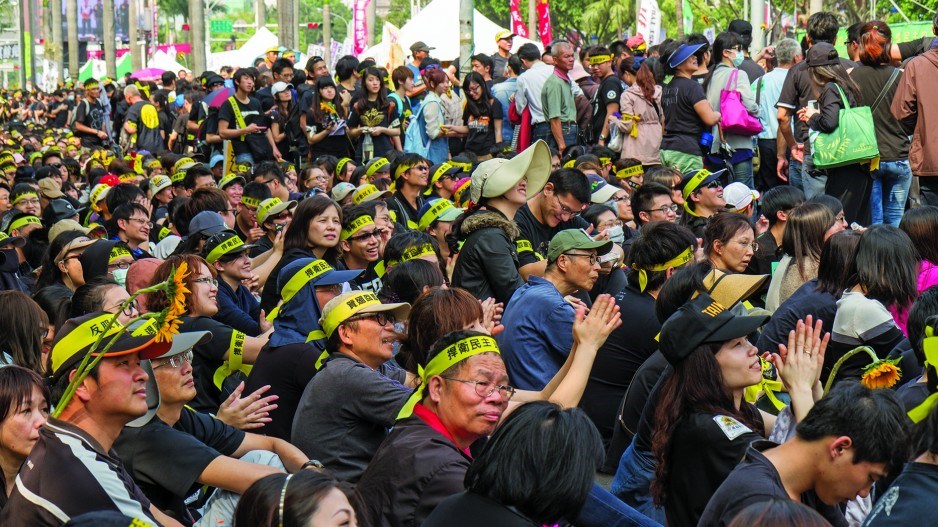China’s heavy-handed rejection of universal suffrage in Hong Kong is threatening to derail the already wobbly economic relations between Beijing and Taiwan.
Beijing’s decision to only allow Hongkongers to elect their governor, the chief executive, from a list of candidates carefully vetted for their loyalty to the Chinese Communist Party has confirmed the worst fears in fiercely democratic Taiwan.
Even Taiwan’s President Ma Ying-jeou, who has pushed through a series of measures aimed at thawing the 60-year deep freeze in cross-strait economic and political relations since he came to power in 2008, has had to bow to public opinion and take a brusque attitude towards Beijing. Hong Kong’s drive for democracy and to maintain the rule of law will “receive the full backing of the Taiwanese,” Ma said after Beijing announced its verdict.
Taiwan’s relations with Beijing were already on a slippery slope because the island’s 23 million people are deeply suspicious that Ma, whose popularity rating is only just into double figures, intends to extend economic deals with Beijing into talks aimed at some form of political union. Nearly 90% of Taiwanese want to keep their independence.
Last month Ma fired his chief policymaker on China and one of the top negotiators with Beijing on suspicion that Beijing had recruited him as a spy.
Beijing’s apparent betrayal of its best friend in Taiwan has put Ma firmly on the defensive, especially over the latest economic deal with China, intended to lower market barriers in 144 service industry categories including banking, tourism and health care. This deal has already excited popular outrage, and members of parliament avoided addressing it in a special summer session. The agreement is likely to be shelved until at least after local elections in November, when voters will have the opportunity to give a verdict on Ma’s Kuomintang party ahead of national elections in 2016.
But the speculation in Taiwan is that the deal is so unpopular it is probably dead. In March and April thousands of student-led protesters occupied parliament, the Legislative Yuan, demanding clause-by-clause examination of the agreement, which they said gives China too much influence over Taiwan’s economy. The members of what has become known as the Sunflower Movement are also outraged by the results of the 20 economic agreements the Ma administration has signed with Beijing so far. These have opened up cross-straits contact, trade and investment for the first time since the Communists took over in China in 1949 and Taiwan became an independent nation. But they have also brought that most pernicious of imports for those who trade with China: growing disparity between the very wealthy and the rest. Taiwan’s highly educated and qualified young graduates are angry over the lack of well-paying jobs or even suitable employment as government-protected industrialists take their factories and investment to China.
For Beijing, the fallout from its Hong Kong decision is a major setback in its campaign to achieve sovereignty over Taiwan, which it claims to own. The “one country, two systems” formula by which Hong Kong was returned by Britain to Chinese rule in 1997 with a guarantee that it would keep autonomy for 50 years was intended to lure Taiwan into a similar agreement. That bait has been accompanied by decades of blackmail by Beijing in which it insists that countries such as Canada, the United States and those of the European Union can only have access to the Chinese market if they limit their relations with Taiwan.
So Taiwanese have always been suspicious of Beijing’s true objectives, and the rejection of democracy in Hong Kong, accompanied by a crackdown on freedom of expression, has only confirmed those fears.
Jonathan Manthorpe ([email protected]) has been an international affairs columnist for nearly 40 years.




